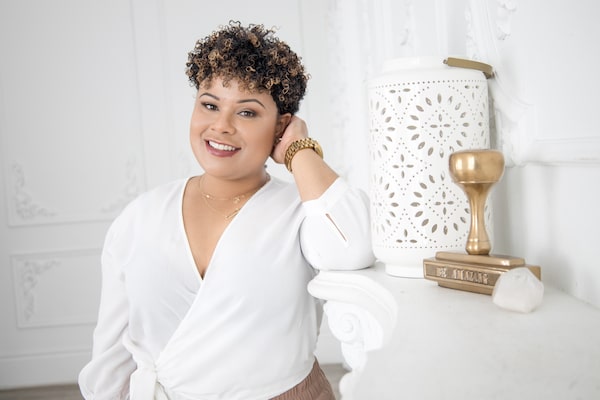
Wallets and bank accounts are slated to face another shakeup as pandemic restrictions are eased.Pekic/getty images
The pandemic altered most Canadians’ finances, for better or worse. From lost income and new mortgages to savings on expenses such as travel or in-person entertainment, COVID-19 changed the way we live, and thus the way we’ve thought about money for the last year-and-a-half.
But as the world re-emerges, wallets and bank accounts are slated to face another shakeup.
That’s why Toronto-based chartered professional accountant Vanessa Bowen, founder of financial coaching service Mint Worthy, says now is the perfect time for Canadians to re-evaluate their monetary habits.
“For people who have already created a strong budgeting habit, it’s going to be an easier shift,” Bowen says of post-pandemic living. “Otherwise, you’ll probably fall back into the same spending trends that you had pre-pandemic.”
Here are Bowen’s top five tips for cleaning up your budget as life in Canada inches back toward normality.

'You will feel better about your spending when you have a plan to tell your dollars where to go,' says Vanessa Bowen, founder of financial coaching service Mint Worthy.Shanika Gosling
Create a budget (if you don’t have one already)
Feeling stressed about balancing numbers? Creating a budget early, over the last few moments of calm left in lockdown, can help alleviate financial worries.
“While things are quiet and we don’t have much going on, it’s a perfect time to spend an hour or two to create your budget,” Bowen says.
By starting now, you’re giving yourself more time to settle into new habits – creating better chances of success post-pandemic.
“You will feel better about your spending when you have a plan to tell your dollars where to go,” Bowen says.
Evaluate your pre-pandemic spending
Adjusting to life post-COVID-19 will require taking a hard look at what life was like before it. Pre-pandemic, Bowen used to pay for a monthly gym membership. But when the world shut down, she purchased a Peloton exercise bike, and doesn’t intend on returning to the gym – even when it’s safe to. That’s a few extra dollars in her pocket each month that can go to something else.
She encourages budgeters to evaluate the expenses they cut during the pandemic and identify those that don’t need to return. Working from home permanently might save you on mid-afternoon coffee runs. Or maybe you’ve picked up the cycling bug and can afford to ditch that monthly transit pass. Make a plan to put what you’re saving on these expenses to use and avoid the temptation to fall back into old habits.
“Make plans for that excess cash now before things open up,” Bowen advises. “Put it towards your savings or your debt.”
Identify pandemic-era habits to cut
COVID-19 exposure concerns justify the cost of having groceries delivered or ordering Uber Eats multiple times a week. But these purchases can add up quickly, and when life returns to normal, they’ll feel like frivolities.
“I think the pandemic has caused some people to create lazy habits, which costs more money,” she says.
When it comes to slashing expenses, these non-essential costs are a good place to start, Bowen says.
“Do it in moderation,” she advises. “There’s no need for this to be a recurring thing, especially if you have debt or you don’t have an emergency fund.”
Save on unnecessary fees to afford small splurges
It’s responsible to live modestly and within your means. But it’s equally important to create a budget with “life” worked into it, Bowen says.
“Make sure your budget has enough wiggle room for you to enjoy the things that you loved to do pre-pandemic, whether that is entertainment or eating out,” she suggests. “By having them in the budget, you’re actually less likely to overspend in these areas.”
It’s unrealistic to eliminate spending on enjoyment entirely – but it should be done responsibly, with eyes wide open. So, Bowen advises allocating a certain amount to these costs, and sticking to it.
To afford occasional luxuries, you may have to look for other opportunities to save. As a start, search through your bank statement for auto-subscriptions to programs or clubs that are no longer serving you. Bowen also recommends switching to a no-fee bank account, automatically transferring a portion of your pay to your savings account the day after your paycheque is deposited and taking advantage of reward programs such as cashback credit cards.
Set a weekly ‘money date’ with yourself
Post-pandemic life will likely come with countless demands on your time. But fifteen minutes once a week is all you need to keep an eye on your books. So, Bowen suggests setting a standing “money date.”
“Your money date is basically a weekly check-in on your spending and how you’re doing against your budget,” Bowen says. “It’s having a pulse on where your money is going.”
Go through your bank statement and compare how you’re spending against how you set out to spend – and be rigorous about upholding a weekly appointment. Monthly check-ins, though easier, are not frequent enough to be effective. The more regular the meeting, the more opportunity you leave yourself to catch and correct bad habits.
“When you see where your money is going every week, it’s going to make sure you’re not getting into the temptation of overspending just because life is back to normal,” Bowen says.